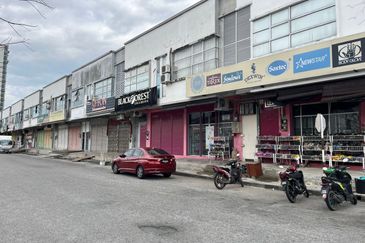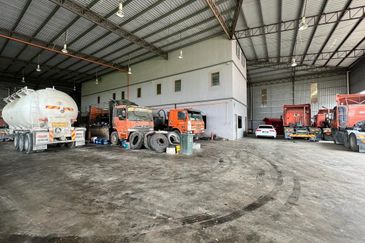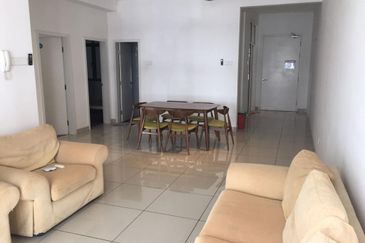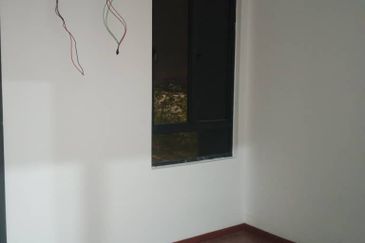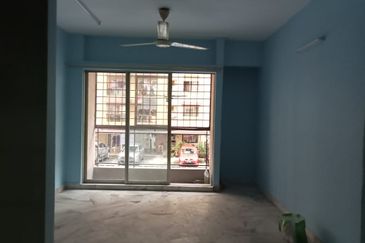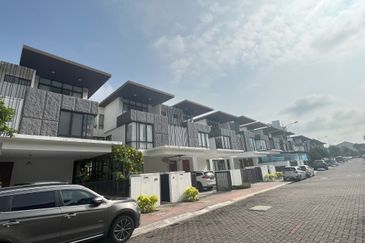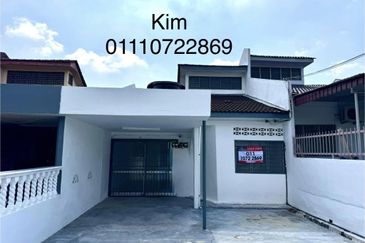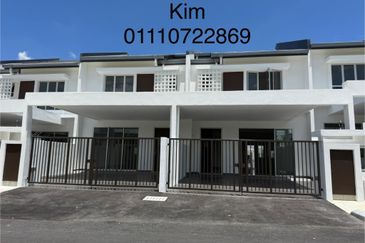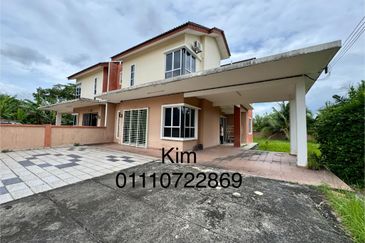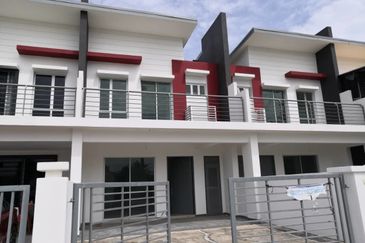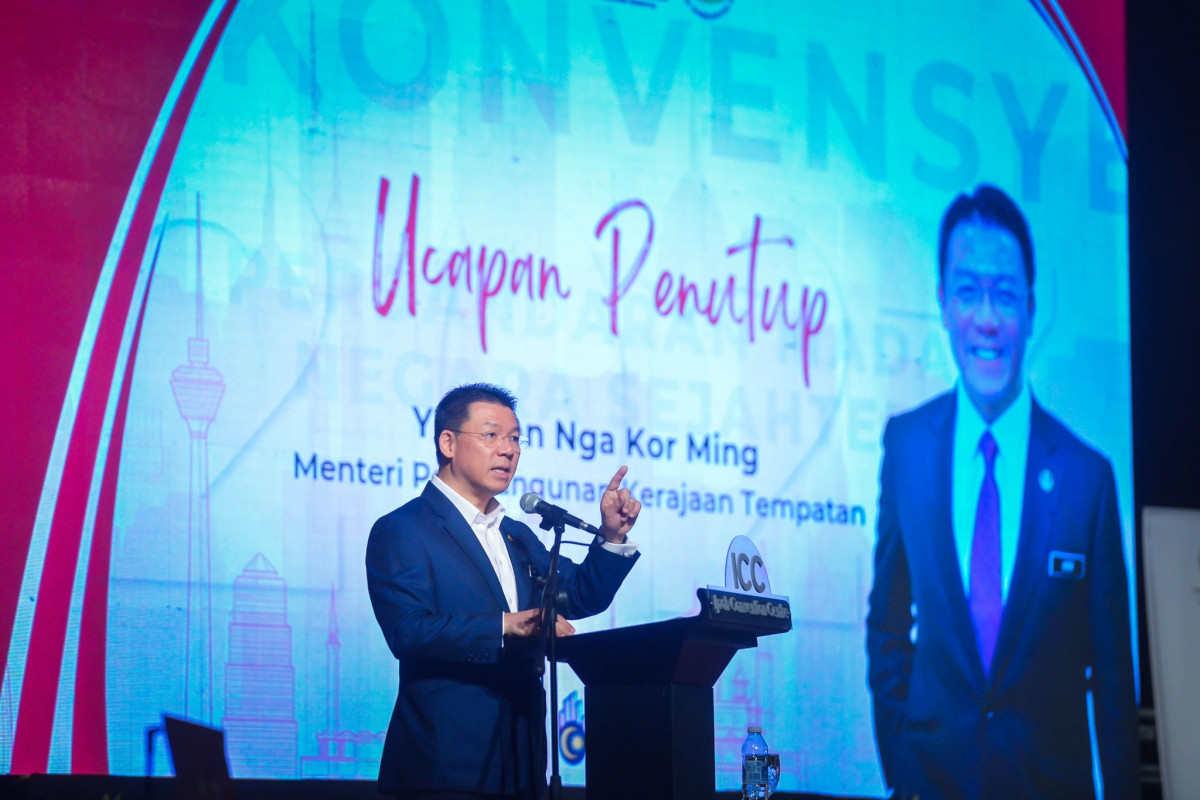
- Housing matters being tackled as one of the highlighted initiatives
- More efforts from local authorities in the country
“I am aware that my duties and responsibilities in KPKT are big and challenging with a wide range of stakeholders and target groups… therefore, I promise to do my best to carry out my responsibilities, to ensure the aspirations of the Unity Government can be achieved as soon as possible.”
Those were the words of the Minister of Local Government Development Nga Kor Ming during his clock-in at the Ministry of Local Government Development (KPKT) in December.
How has he fared so far helming the ministry? With the 100-day mark hit earlier this month, EdgeProp reviews the key efforts made by the Teluk Intan MP.
Earlier, Nga announced that his ministry will be looking into seven main areas, which include developing and empowering the integrity of local government; developing local authorities to be financially strong organisations; developing a comprehensive housing plan with issues such as homeownership and home construction to be addressed; community empowerment; effective and efficient solid waste management; strengthening the smart city and safe city agenda; and strengthening the readiness of firefighter and rescue teams.

Last month, Nga said KPKT, through the Town and Country Planning Department (PLANMalaysia), is committed to strengthening town planning provisions and policies by focusing on six development criteria – connectivity of neighbourhoods, sustainable township planning, multi-sized open spaces, visual permeability as passive security, adaptation of renewable energy, and sustainable communities.
He said this requires continued effort from various parties, including local experts, to strengthen the quality of town development planning, and to turn it into a platform to share experiences and hold discussions on national development planning policies.
Housing initiatives
The most debated of the housing initiatives from KPKT is Nga’s plan to study the success of Singapore’s Housing and Development Board (HDB) and implement it in our country.
Nga mentioned that specialists from HDB will be visiting Malaysia by end-March and that KPKT is open to learn and consult any agencies or specialists to discuss affordable housing schemes.
While the idea was not happily received by several parties, Nga defended the plan, saying that there is nothing wrong in consulting external experts and that his ministry is always keen to explore initiatives to improve the housing sector in Malaysia.
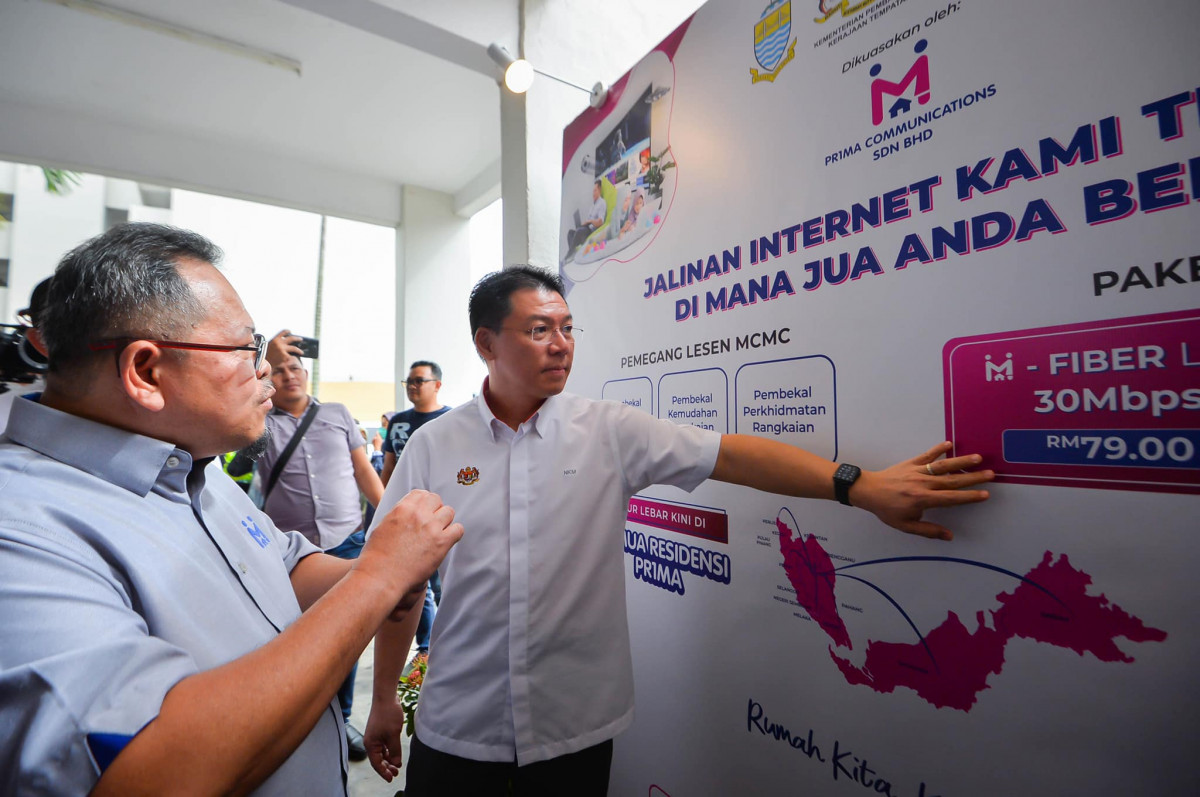
“We want to have world-class housing for our people,” he said.
On another recurrent issue — abandoned housing projects — last month Nga announced that buyers of “sick” private housing projects can apply for a loan restructuring with support letters issued from the government.
He said KPKT can issue letters through the Department of National Housing to affected buyers in order to help ease their financial burden.
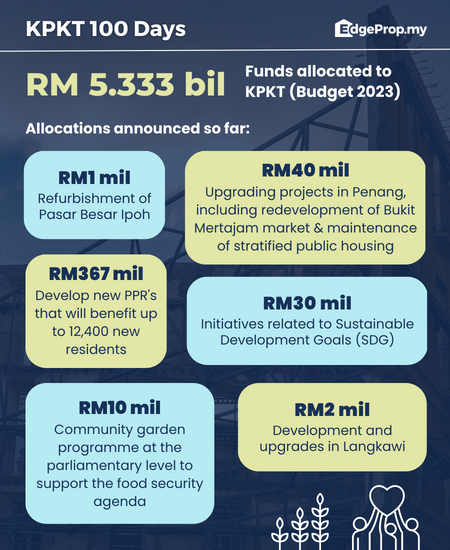
In December 2022, Nga announced that a special task force will be established to deal with abandoned or “sick” housing projects, aiming to find a win-win formula with the developers to fix the problem and make sure the industry survives.
It is with this in mind that Nga revealed last week about a feasibility study to be done for all new projects under KPKT.
He said that such a study would be conducted independently, as it is important to prevent new projects from becoming “white elephants”.
“In fact, with this new approach, there will no longer be ‘white elephants’, or projects which were abandoned like before,” he said.
Local government and LAs
On the issues involving Local Authorities (LAs), Nga initiated talks in order to resolve problems regarding the maintenance of public facilities, with an emphasis on public toilets.
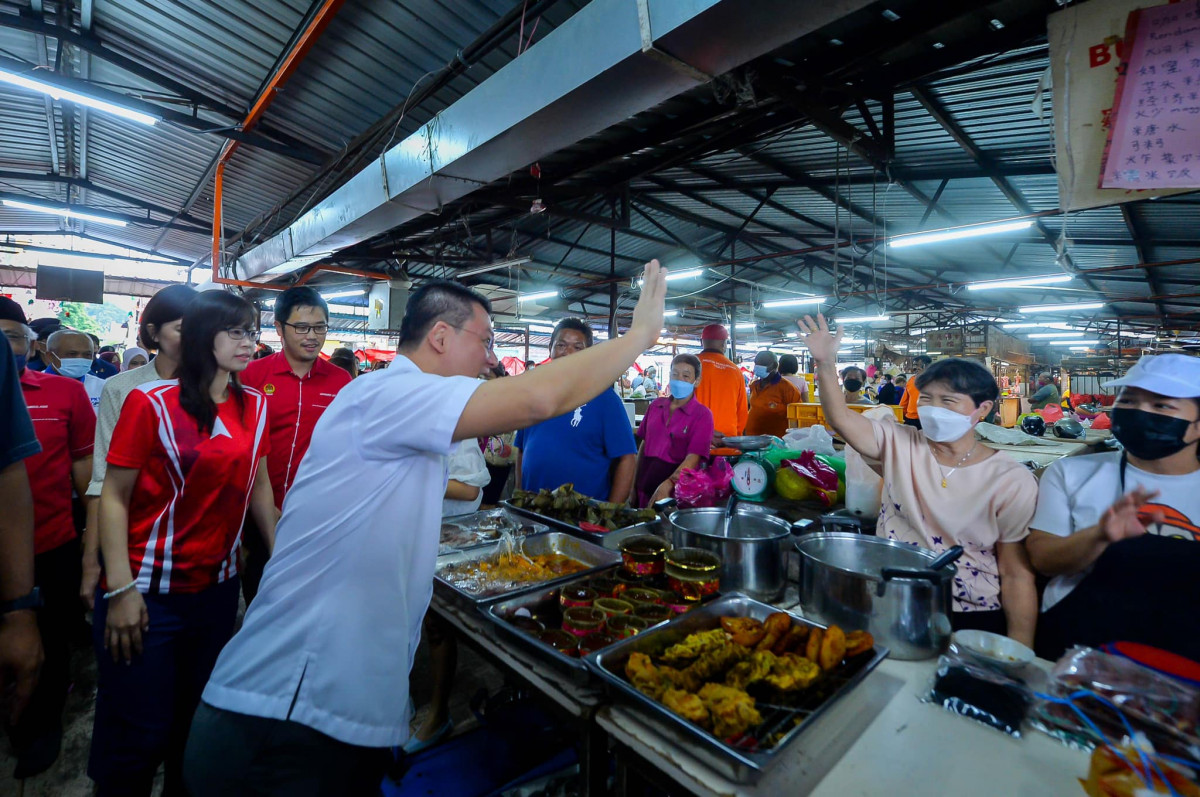
Nga mentioned in January that KPKT will hold a meeting with Kuala Lumpur mayor Datuk Seri Mahadi Che Ngah on the matter.
Nga said he hopes that all the 155 local government authorities nationwide could set up a unit to monitor the cleanliness of public toilets in their areas of jurisdiction.
Two weeks ago, Nga announced that 100 drive-through recycling centres are expected to be set up in Malaysia, with 32 already operating in various places.
He said the recycling percentage currently stands at 33%, and added that KPKT plans to increase it to 40% by 2025.
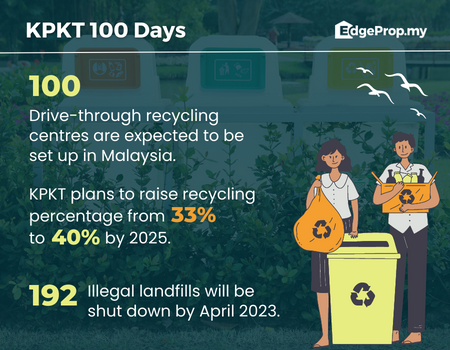
He also announced that KPKT, through Solid Waste and Public Cleansing Management Corporation (SWCorp), is looking into closing down 192 more illegal landfills by the end of next month.
Legalising firecrackers, preventing landslides and a STRA guide
One of the most talked about subjects involving KPKT is the move to legalise the sale of firecrackers and fireworks as a measure to increase the country’s revenue.
“I expect the government's revenue will increase, we will get hundreds of millions in [duties] from licence holders and we will regulate the law,” he was reported saying during a Chinese New Year event last month.
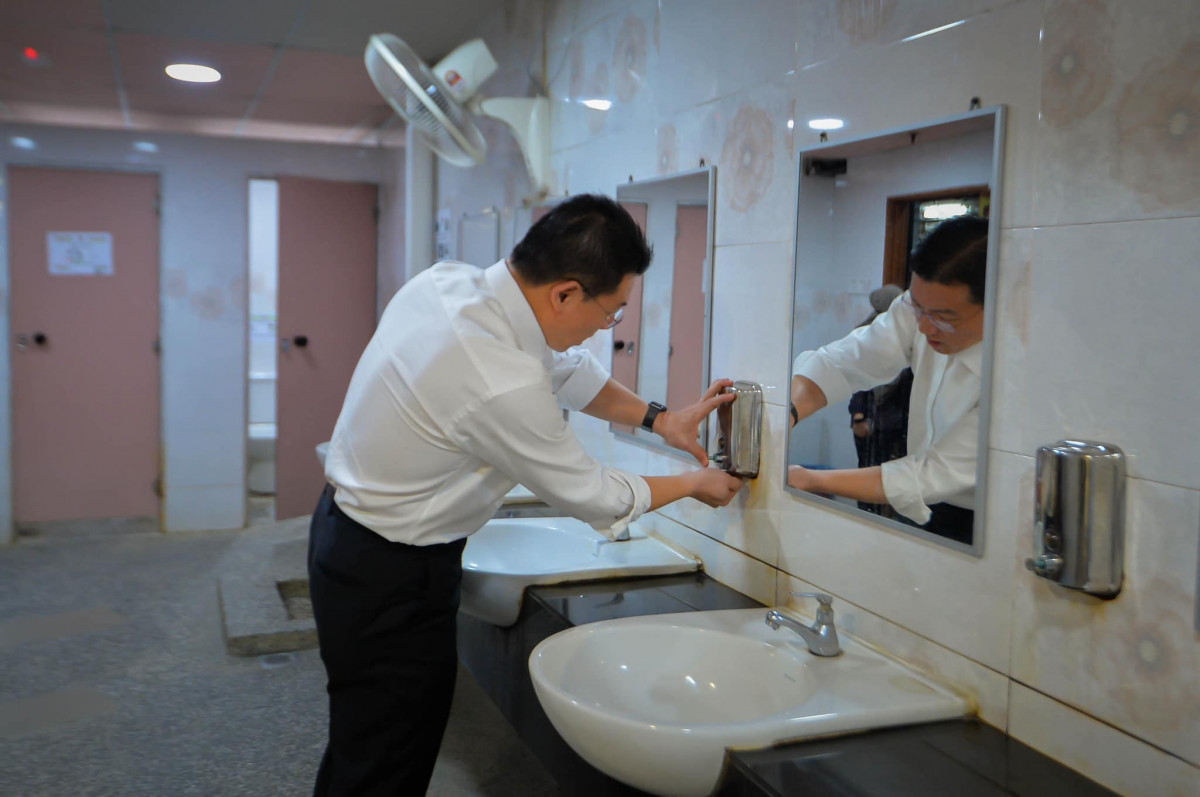
Another crucial issue that was handled by KPKT is the Batang Kali landslide in December last year, which shook the whole country and is said to be Malaysia’s second worst disaster in terms of fatalities.
Following the incident, KPKT has prepared a Draft Camping Site Planning Guidelines (GPP), through the Town and Country Planning Department (PLANMalaysia), which is expected to be finalised at the end of April.
Nga said the guidelines considered the views and feedback of various relevant agencies including LAs and campsite operators.
He said the aspects considered for the guidelines are the safety of the site, the topographical conditions, and also touched on issues related to legal compliance under the jurisdiction of local authorities and related agencies.
Nga also announced that in the works is a comprehensive short-term rental accommodation (STRA) guide, to be adopted by all local governments in Malaysia.
He said the guidelines and regulations will be included in the Cabinet Ministers Memorandum paper, led by the Ministry of Tourism, Arts and Culture, to deal with issues that occur at the operational and implementation levels of STRA.
Allocations
In mid-January, Nga announced an allocation of RM1 million for the repair of Pasar Besar Ipoh, which was built in 1959.
He said KPKT plans to identify old/dilapidated markets to preserve their structure and architecture.
Last month, Nga announced a RM40 million allocation for upgrading projects in Penang, with a total of RM24 million for the redevelopment of the Bukit Mertajam market while the remaining RM16 million will be for the maintenance fund of stratified public housing in Penang — a 70% increase in the federal government’s allocation compared to last year’s provision for the maintenance of public housing in Penang.
He explained that the fund could be used for the maintenance and repair of high-rise public housing in the state such as fixing elevators, replacing water tanks, rewiring of electric cables and repairing fences, gates and public toilets.
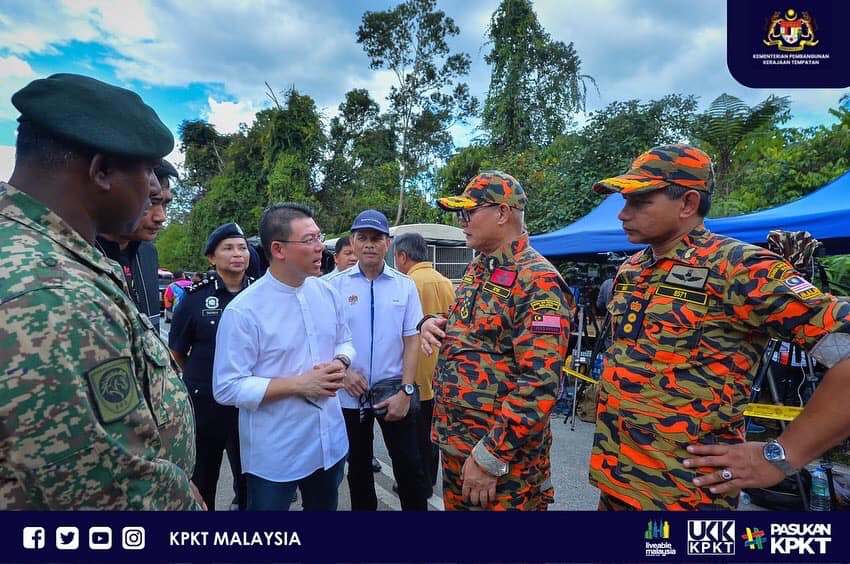
Last week, it was reported that Nga approved an allocation of RM2 million to the Langkawi Municipal Council for upgrading and developments project in the island.
From the Budget 2023, Nga said RM5.333 billion has been set aside for the ministry this year compared to RM5.146 billion in 2022, an increase of 3.63% (RM186.9 million).
“The ministry is committed to implementing various initiatives designed to empower every level of society. Budget 2023 also continues to focus on the Livable Malaysia agenda,” he said.
Nga said there were 11 initiatives involving KPKT, including RM50 million to replace worn-out lifts in People's Housing Projects (PPR).
Some RM367 million has been allocated to develop new PPRs to benefit 12,400 new residents, RM30 million to increase activities related to Sustainable Development Goals (SDG), and RM10 million to drive the community garden programme at the parliamentary level to support the food security agenda.
TOP PICKS BY EDGEPROP

Seksyen 6, Kota Damansara
Kota Damansara, Selangor
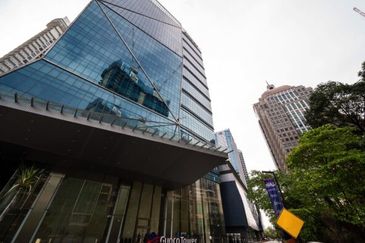
Pavilion Damansara Heights
Pusat Bandar Damansara, Kuala Lumpur
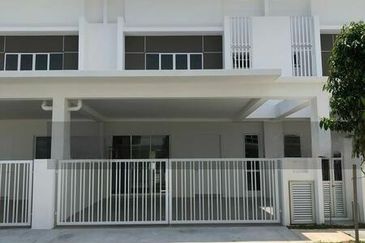
Ara Sendayan @ Bandar Seri Sendayan
Seremban, Negeri Sembilan


